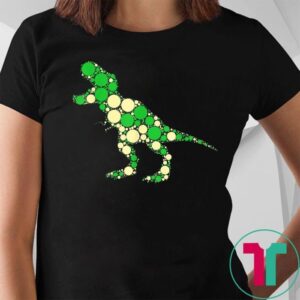As vegetarian diet supplements take center stage, this opening passage beckons readers with Fimela author style into a world crafted with good knowledge, ensuring a reading experience that is both absorbing and distinctly original.
Vegetarian diet supplements have emerged as a crucial component in the lives of those who embrace a plant-based lifestyle. They offer a targeted approach to bridging nutritional gaps, supporting overall well-being, and optimizing the vegetarian experience.
Nutritional Benefits of Vegetarian Diet Supplements
Vegetarian diet supplements can play a crucial role in ensuring that vegetarians meet their nutritional requirements. Vegetarian diets exclude meat, poultry, and fish, which are rich sources of certain nutrients. As a result, vegetarians may need to supplement their diet with specific nutrients to prevent deficiencies.
Essential Nutrients
Some of the essential nutrients that may be lacking in a vegetarian diet include:
- Vitamin B12:This vitamin is primarily found in animal products and is essential for the production of red blood cells and DNA synthesis.
- Iron:Iron is necessary for the production of hemoglobin, which carries oxygen throughout the body. While plant-based foods contain iron, it is less absorbable than iron from animal sources.
- Calcium:Calcium is essential for bone health and is primarily found in dairy products. Vegetarians can obtain calcium from fortified plant-based milks, leafy green vegetables, and tofu.
- Omega-3 fatty acids:These essential fatty acids are found in fatty fish and are important for heart and brain health. Vegetarians can obtain omega-3s from plant-based sources such as flaxseeds, chia seeds, and walnuts.
Supplementing with these nutrients can help vegetarians maintain optimal health and prevent deficiencies that may arise from a plant-based diet.
Types of Vegetarian Diet Supplements
Vegetarian diet supplements provide a range of essential nutrients and ingredients to meet the specific needs of vegetarians and vegans. These supplements come in various forms, each tailored to address different dietary requirements.
Here are some common types of vegetarian diet supplements and their target audience:
Vitamin B12 Supplements
- Provide vitamin B12, a nutrient primarily found in animal products.
- Target audience: Vegetarians and vegans who may not get enough B12 from their diet.
Iron Supplements
- Provide iron, an essential mineral for red blood cell production.
- Target audience: Vegetarians, especially those who consume limited amounts of iron-rich plant foods.
Calcium Supplements
- Provide calcium, a crucial mineral for bone health.
- Target audience: Vegetarians and vegans who may not get enough calcium from plant-based sources.
Omega-3 Fatty Acid Supplements
- Provide omega-3 fatty acids, essential for heart and brain health.
- Target audience: Vegetarians and vegans who do not consume fish or other animal products that are rich in omega-3s.
Protein Powders
- Provide high-quality protein from plant sources, such as soy, pea, or brown rice.
- Target audience: Vegetarians and vegans who need to increase their protein intake.
Considerations for Choosing Vegetarian Diet Supplements

Selecting the right vegetarian diet supplements requires careful consideration to ensure they meet your nutritional needs and complement your dietary choices. Here are some key factors to guide your decision-making:
Certifications and Third-Party Testing
Look for supplements that carry certifications from reputable organizations like the NSF International or USP. These certifications verify that the products meet specific standards for quality, purity, and safety. Third-party testing by independent laboratories further ensures that the supplements contain the ingredients and dosages stated on the label.
Potential Interactions
Be aware of potential interactions between vegetarian diet supplements and medications or other supplements you may be taking. Consult with your healthcare provider to discuss any concerns or potential contraindications. For example, iron supplements can interfere with the absorption of certain antibiotics, while vitamin K supplements may interact with blood thinners.
Dosage and Safety of Vegetarian Diet Supplements
Vegetarian diet supplements, like any dietary supplements, should be taken with caution. The recommended dosage and potential side effects vary depending on the specific type of supplement.
If you’re looking for a way to reduce your dairy intake without giving up on seafood, a dairy-free pescatarian diet may be the perfect solution. This diet eliminates all dairy products, including milk, cheese, and yogurt, while still allowing you to enjoy fish, shellfish, and other seafood.
It’s crucial to adhere to the manufacturer’s instructions and consult a healthcare professional before using any supplements. This ensures optimal benefits and minimizes potential risks.
Recommended Dosage
The recommended dosage for vegetarian diet supplements varies based on the type of supplement and the individual’s specific needs. It’s important to read the product label carefully and follow the instructions provided.
In general, it’s recommended to start with a low dose and gradually increase it as needed, while monitoring for any side effects.
Potential Side Effects
Excessive intake of vegetarian diet supplements can lead to potential side effects, such as:
- Digestive issues (e.g., nausea, constipation, diarrhea)
- Headaches
- Interactions with medications
If any side effects occur, it’s advisable to discontinue use and consult a healthcare professional.
Contraindications, Vegetarian diet supplements
Certain vegetarian diet supplements may be contraindicated for individuals with specific health conditions or allergies. For example:
- Iron supplements may be contraindicated for people with iron overload
- Vitamin B12 supplements may be contraindicated for people with a history of kidney stones
It’s essential to disclose all medical conditions and medications to a healthcare professional before using any supplements.
If you’re looking for a healthy and sustainable way to eat, a dairy-free pescatarian diet may be a great option. This diet eliminates all dairy products and focuses on consuming fish, seafood, fruits, vegetables, and whole grains. It’s a great way to reduce your intake of saturated fat and cholesterol, while still getting plenty of protein and essential nutrients.
Importance of Manufacturer’s Instructions and Healthcare Professional Consultation
Following the manufacturer’s instructions and consulting a healthcare professional before using vegetarian diet supplements is crucial for several reasons:
- Ensures proper dosage and minimizes potential side effects
- Identifies any potential contraindications or interactions with medications
- Provides personalized advice based on individual health needs
By following these guidelines, individuals can safely and effectively incorporate vegetarian diet supplements into their routine.
Ethical Considerations and Sustainability
Ethical considerations and sustainability play a crucial role in the production and sourcing of vegetarian diet supplements. It is important to ensure that supplements are produced in a way that respects animal welfare, the environment, and the communities involved.
Environmental Impact
The supplement industry has a significant environmental impact, particularly in terms of resource consumption and waste generation. The production of vegetarian diet supplements requires land, water, and energy resources. It is important to choose supplements that are produced using sustainable practices, such as organic farming and renewable energy sources.
Ethical Considerations
Ethical considerations in the production of vegetarian diet supplements include animal welfare, fair trade practices, and labor rights. Some supplements may contain ingredients derived from animals, such as gelatin or whey protein. It is important to choose supplements that are cruelty-free and do not contribute to animal suffering.
Additionally, supplements should be sourced from companies that adhere to fair trade practices and ensure that workers are treated ethically.
Comparison of Vegetarian Diet Supplements with Other Dietary Sources

Vegetarian diet supplements offer a convenient way to supplement the nutrients that may be lacking in a plant-based diet. However, it is important to understand the nutritional value of vegetarian diet supplements compared to natural food sources to make informed decisions about supplementation.
Natural food sources provide a wide range of nutrients in their natural form, including vitamins, minerals, antioxidants, and fiber. Whole fruits, vegetables, legumes, nuts, and seeds are all excellent sources of essential nutrients for vegetarians. These foods also contain phytonutrients, which are plant compounds that have been linked to various health benefits.
Vegetarian diet supplements, on the other hand, are concentrated sources of specific nutrients that may be lacking or insufficient in a plant-based diet. For example, vitamin B12, iron, and omega-3 fatty acids are commonly found in vegetarian diet supplements.
Advantages of Vegetarian Diet Supplements
- Convenience: Vegetarian diet supplements are a convenient way to ensure adequate intake of essential nutrients, especially for those who have difficulty consuming enough nutrient-rich foods.
- Targeted Supplementation: Supplements can provide targeted supplementation of specific nutrients that may be lacking in a vegetarian diet, such as vitamin B12 or iron.
Disadvantages of Vegetarian Diet Supplements
- Potential Interactions: Vegetarian diet supplements may interact with certain medications or other supplements, so it is important to consult with a healthcare professional before taking any supplements.
- Limited Nutrient Profile: Vegetarian diet supplements typically provide only a limited range of nutrients, unlike whole foods that offer a comprehensive array of nutrients.
Whether vegetarian diet supplements are necessary or beneficial depends on individual dietary needs and circumstances. Those who consume a well-balanced vegetarian diet that includes a variety of nutrient-rich foods may not require supplementation. However, individuals with specific nutrient deficiencies or who have difficulty meeting their nutrient needs through diet alone may benefit from supplementation.
It is always advisable to consult with a healthcare professional or registered dietitian to determine if vegetarian diet supplements are appropriate and to establish an appropriate dosage and supplementation plan.
Market Trends and Innovations in Vegetarian Diet Supplements
The vegetarian diet supplement industry is experiencing significant growth, driven by rising consumer demand for plant-based and sustainable products. Several key trends are shaping the market:
- Increasing demand for plant-based alternatives:Consumers are increasingly seeking vegetarian and vegan alternatives to traditional animal-based supplements.
- Focus on sustainability and ethical sourcing:Consumers are becoming more conscious of the environmental and ethical implications of their dietary choices, leading to a demand for sustainably sourced and cruelty-free supplements.
- Personalization and tailored solutions:Advancements in technology and research have enabled the development of personalized vegetarian diet supplements that cater to specific dietary needs and health goals.
Emerging Technologies and Innovations
Emerging technologies are also driving innovation in the vegetarian diet supplement industry:
- Plant-based protein isolates:Advanced extraction techniques are producing high-quality plant-based protein isolates that provide essential amino acids in a sustainable and ethical manner.
- Precision fermentation:This technology allows for the production of vitamins, minerals, and other nutrients through microbial fermentation, offering a more efficient and sustainable alternative to traditional extraction methods.
- Artificial intelligence (AI):AI is being used to analyze consumer data and personalize vegetarian diet supplements, providing tailored recommendations based on individual needs and preferences.
Potential Growth Areas and Future Developments
The vegetarian diet supplement industry is poised for continued growth in the coming years, with potential growth areas including:
- Functional vegetarian diet supplements:Supplements that combine vegetarian nutrients with functional ingredients to support specific health benefits, such as immune support or cognitive function.
- Personalized vegetarian meal replacement shakes:Convenient and tailored meal replacement shakes that provide complete vegetarian nutrition, addressing the challenges of meeting nutrient needs on a vegetarian diet.
- Vegetarian sports nutrition:Plant-based supplements designed to support athletic performance and recovery, catering to the growing demand for vegetarian and vegan athletes.
Last Word

In conclusion, vegetarian diet supplements offer a valuable tool for vegetarians to thrive. By understanding the nutritional benefits, types, considerations, and ethical implications, individuals can make informed choices to supplement their diets effectively. As the industry continues to evolve, we can anticipate further innovations and advancements that will empower vegetarians to live healthier and more fulfilling lives.
FAQ Corner: Vegetarian Diet Supplements
Are vegetarian diet supplements necessary for all vegetarians?
While a well-planned vegetarian diet can provide adequate nutrition, supplementation may be beneficial for certain individuals, such as those with limited access to diverse plant-based foods or those with specific nutrient deficiencies.
How do I choose the right vegetarian diet supplement for me?
Consider your individual nutritional needs, consult with a healthcare professional, and look for supplements with certifications and third-party testing to ensure quality and safety.
Can vegetarian diet supplements interact with medications?
Yes, some supplements may interact with certain medications. Always consult with your doctor before taking any supplements, especially if you are taking prescription drugs.





Leave a Comment